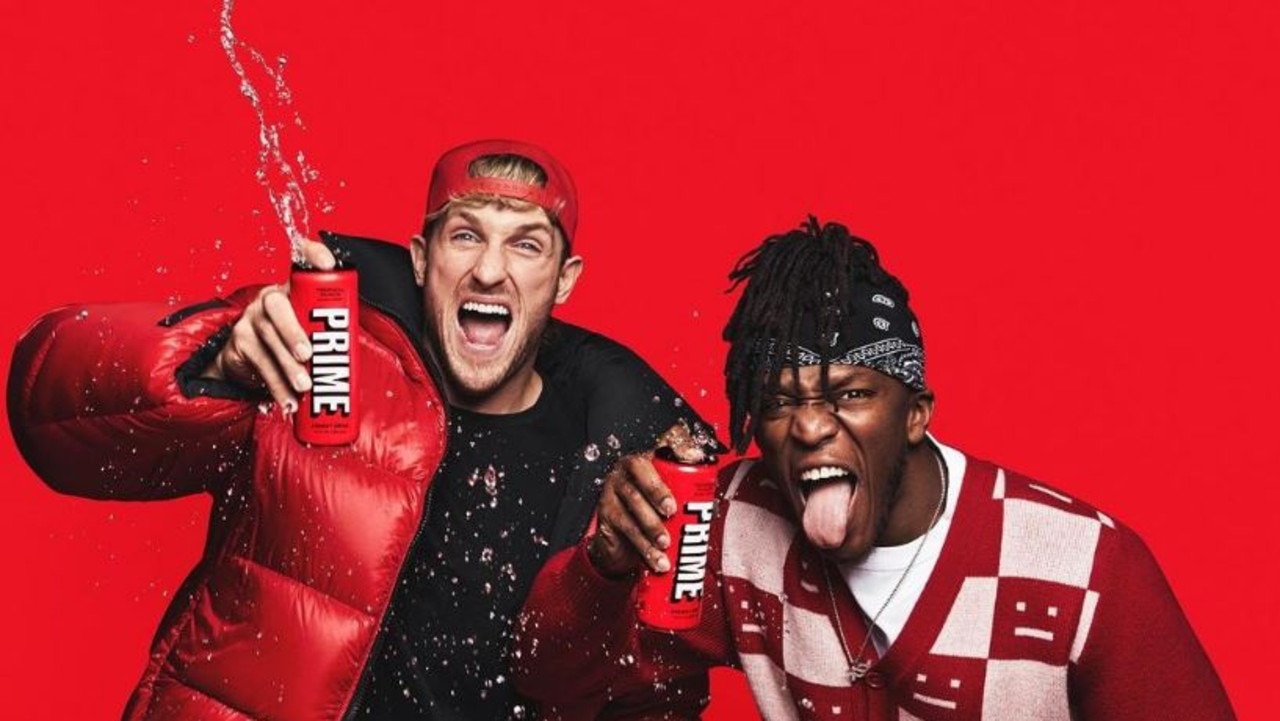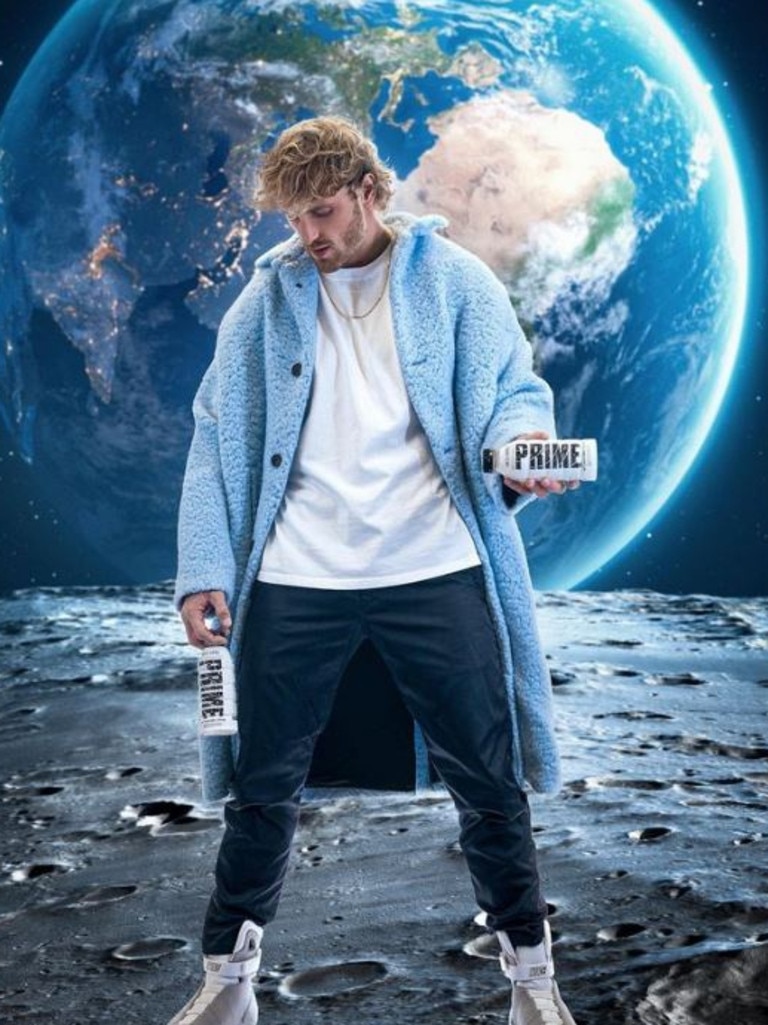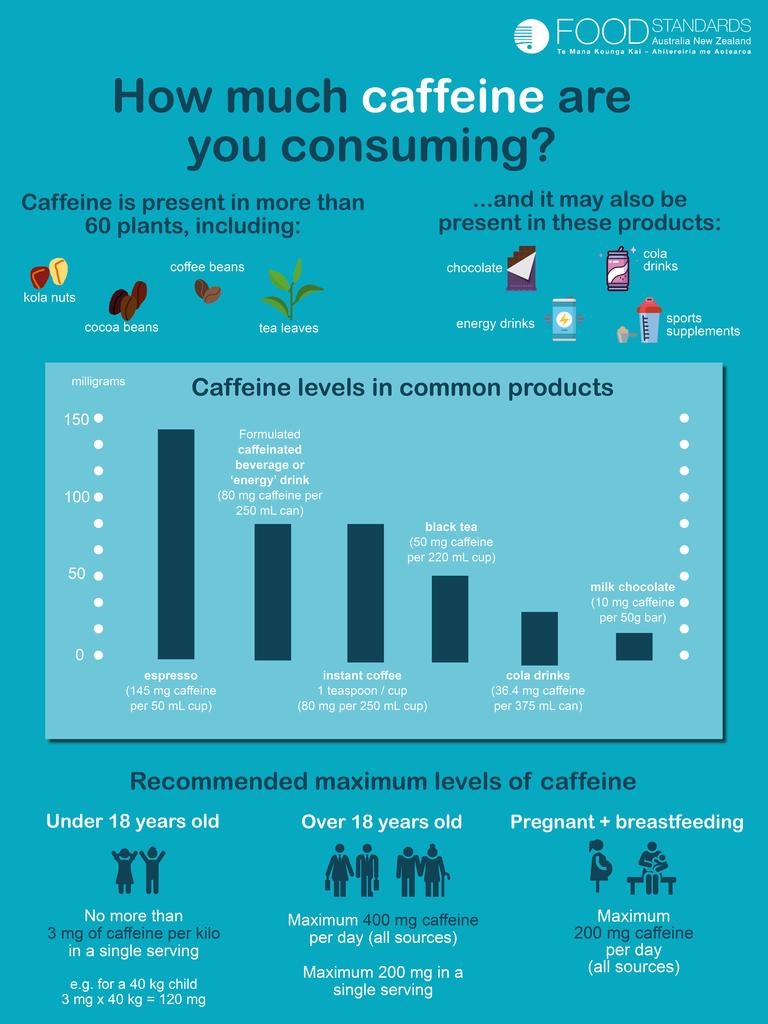Australia allows sale of Logan Paul and KSI’s Prime energy drink despite caffeine risk for children
Australia allows sales of Prime energy drink, owned by social media stars Logan Paul and KSI, despite in containing six times more caffeine than a can of Coke

READING LEVEL: ORANGE
Health experts are urging* Australian kids to not be fooled by social media marketing* after an energy drink containing six times the amount of caffeine* as a can of Coke was made available for sale in the country.
The drink, Prime, was founded* by social media stars Logan Paul, an American who describes himself as an “artist, boxer and wrestler”, and KSI, an English rapper and boxer.
Between them, the men have almost 50 million subscribers* on YouTube, not to mention many more on other social media channels, and while they have been careful to include a hard-to-spot warning against children drinking Prime, their fan base of young Australians have shown great interest in it.

Leading paediatric* gut health dietitian* at Tricky Little Tummies, Karina Savage, told radio station 3AW that despite Prime being an energy drink for adults, the clever marketing* and packaging made it “super appealing” to young people.
“[Energy drinks] are not necessary, especially the caffeinated* ones, [and] are not good for our children, we don’t want them to be having big hits of caffeine as they head off to school in the morning,” Ms Savage said.
Australian law states the maximum allowable amount of caffeine in a drink is 32 mg per 100ml. One can of Prime has 56mg of caffeine per 100ml, six times the 9mg per 100ml in a can of Coke. A can of Red Bull has exactly 32mg per 100ml.
The dangerously* high level of caffeine* in the drink should technically* make it illegal* for sale in Australia but by calling it a “dietary supplement”*, the clever marketers found a loophole*.

“That whole industry has loopholes*, it’s not regulated like the pharmaceutical industry* so if they want to find a loophole*, I’m sure they can,” Ms Savage told 3AW.
“Certainly, I think it should be targeted more towards adults but our children are wanting them and I think that’s the problem.
“Caffeine is a drug. The American Academy of Paediatrics [says] for kids under 12, they should be having none, that’s their recommendation and even for kids 12-18, they say no more than 100mg per day.”
While caffeine can have dangerous effects on people of any age (see below), the drink contains a list of other ingredients where little known about the health implications*.
Paul told listeners of KIIS’s Kyle and Jackie O Show the energy drink made the equivalent of $363 million in retail sales during its first year. He added in the month of January, the energy drink made $65 million for the month.
Energy drink consumption has been linked to headaches, stomach aches, insomnia*, fatigue*, irritation and hyperactivity* and inattention symptoms.

What is caffeine?
Caffeine is a stimulant* that is naturally occurring and is found in leaves and fruits of certain plants. It is in things like coffee, most teas, cocoa, chocolate, cola, guarana and energy drinks.
Caffeine affects your central nervous system* and in small doses can boost energy and focus, in large doses can cause a range of bad reactions.
How can caffeine be bad?
Side effects of consuming caffeine in any dose varies per person and can include feeling agitated* and anxious*, make it hard to sleep, increase heart rate and in severe cases can cause seizures*, vomiting, tremors* and psychosis*.
GLOSSARY
- urging: advising someone very strongly to do something
- marketing: process of getting people interested in your company’s product or service
- caffeine: a drug that stimulates (increases the activity of) your brain and nervous system
- founded: the act of starting something new
- subscribers: people who follow a channel
- paediatric: relating to the medical care of children
- dietitian: an expert on diet and nutrition.
- dangerously: in a way that is able or likely to cause harm or injury
- technically: according to the facts or exact meaning of something
- illegal: not allowed by law
- dietary supplement: any vitamin, mineral, herbal product, or other ingestible preparation that is added to the diet to benefit health
- loophole: a small mistake in a law that makes it possible to do something the law is supposed to prevent
- pharmaceutical industry: connected with the industrial production of medicine
- health implications: potential health effects
- insomnia: chronic sleep disorder, difficulty falling or staying asleep
- fatigue: state of tiredness, exhaustion, drowsiness
- hyperactivity: having more energy than is normal, easily excited, being unable to stay still
- stimulant: a substance that raises levels of physiological or nervous activity in the body
- central nervous system: consists mostly of the brain and spinal chord and controls things like movement, thought, emotions and breathing
- agitated: feeling or appearing troubled or nervous
- anxious: worried because you think something bad might happen
- seizures: a medical condition causing temporary, unstoppable surges of electrical activity in the brain
- tremors: a shaking movement in a person’s body
- psychosis: unable to distinguish what is real
EXTRA READING
Teens make ‘Monster’ mistake with energy drinks
Energy drinks robbing teens of sleep
Junk food tells lies to your brain
Sleep app boosts teen mental health
QUICK QUIZ
- How much caffeine is in one can of Prime
- List three side effects of consuming too much caffeine
- How did Logan Paul and KSI get around the law preventing the sale of heavily caffeinated drinks?
- What was the main message gut health dietitian at Tricky Little Tummies, Karina Savage, shared on radio?
- Why do Logan Paul and KSI want more people to buy their drinks?
LISTEN TO THIS STORY
CLASSROOM ACTIVITIES
1. What Do You Think?
“Prime should be banned in Australia.”
Use the information in the story and your own opinion to write a list of reasons either for or against this statement.
Time: allow 25 minutes to complete this activity
Curriculum Links: English, Health and Physical Education, Personal and Social Capability
2. Extension
Do you think that Prime would be so popular without Logan Paul and KSI? Write a paragraph explaining your opinion.
Time: allow 20 minutes to complete this activity
Curriculum Links: English, Health and Physical Education, Personal and Social Capability
VCOP ACTIVITY
It should be illegal
Do you agree or disagree? This type of drink should not be allowed according to Australian Law, but the company has found a loophole. Do you think that’s right?
Think about what might happen to kids' bodies if they consume the drink, especially if it becomes a regular occurrence.
Write a letter to your local shops sharing your opinion. Should the drinks be on their shelves or not? Should there be any type of regulation over purchasing the drink? If so, what?
Remember to use your VCOP skills to edit and up-level your writing and really get your message across.

